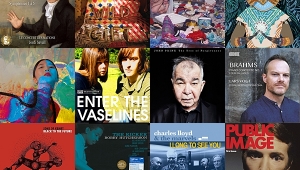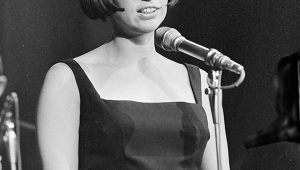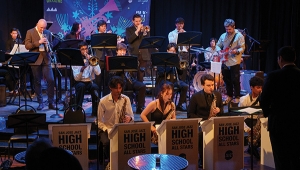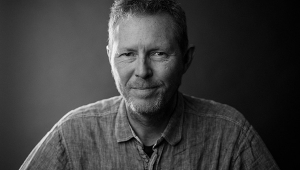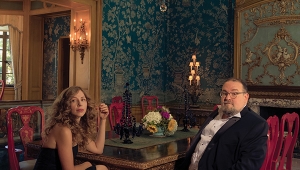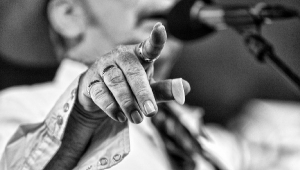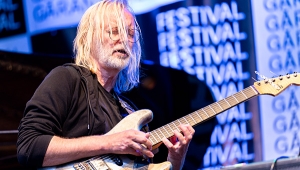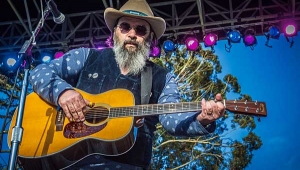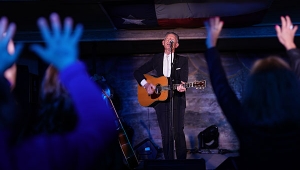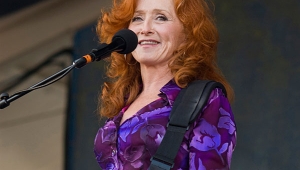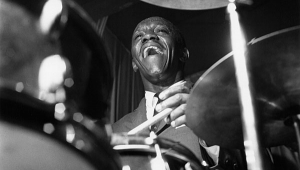| Columns Retired Columns & Blogs |
Zappa Returns! Wazoo
Sidebar: Wazoo
FRANK ZAPPA: Wazoo
Frank Zappa, conductor, guitar; Mike Altshul, piccolo, bass clarinet, winds; Jay Migliori, flute, tenor saxophone, winds; Earl Dumler, oboe, contrabass sarrusophone, winds; Ray Reed, clarinet, tenor saxophone, winds; Charles Owens, soprano & alto saxophone, winds; Joann McNab, bassoon; Malcolm McNab, Sal Marquez, trumpet; Tom Malone, trumpet, tuba; Glen Ferris, trombone, euphonium; Kenny Shroyer, trombone, baritone horn; Bruce Fowler, trombone; Jerry Kessler, electric cello; Tony Duran, slide guitar; Ian Underwood, piano, synthesizer; Dave Parlato, bass; Tom Raney, vibes, electric percussion; Ruth Underwood, marimba, electric percussion; Jim Gordon, electric drums
Vaulternative VR 2007-2 (2 CDs). 2008. Gail Zappa, Joe Travers, prods.; Frank Zappa, orig. eng.; Doug Sax, Robert Hadley, mastering. AAD. TT: 96:05
 Early on the evening of September 24, 1972, I left my fourth-floor walkup in the nether reaches of Boston's Beacon Hill, boarded a Red Line train at the Charles Street Station, and headed off for the Boston Music Hall and an event I'd looked forward to for weeks: a rare concert (there were only ever eight) by Frank Zappa's big band, variously called the Hot Rats Orchestra, the Grand Wazoo, or simply (as here) Wazoo. I didn't have a ticket—the price of $25 (or was it $12?) seemed more than my crashpad-grade exchequer could sustain. But at the last minute I decided to run the usual gantlet of scalpers in hopes of finding one desperate or merciful enough to sell me one, like, below cost, man. I was, in a word, young.
Early on the evening of September 24, 1972, I left my fourth-floor walkup in the nether reaches of Boston's Beacon Hill, boarded a Red Line train at the Charles Street Station, and headed off for the Boston Music Hall and an event I'd looked forward to for weeks: a rare concert (there were only ever eight) by Frank Zappa's big band, variously called the Hot Rats Orchestra, the Grand Wazoo, or simply (as here) Wazoo. I didn't have a ticket—the price of $25 (or was it $12?) seemed more than my crashpad-grade exchequer could sustain. But at the last minute I decided to run the usual gantlet of scalpers in hopes of finding one desperate or merciful enough to sell me one, like, below cost, man. I was, in a word, young.
Wazoo is the record of that evening with one of Zappa's largest, shortest-lived, and longest-rumored bands, never released until now, 36 years after the concert and 15 years after its leader's death. On paper, it looks very good: a 20-piece big band of six reeds, six brass, two guitars, keyboards, cello, bass, and three percussionists, playing arrangements of mostly long compositions just recently (or about to be) released in studio-recorded versions on 200 Motels, Waka/Jawaka, and The Grand Wazoo, and years later on Studio Tan, Sleep Dirt, and, eventually and posthumously, Läther.
Sure enough, these complex scores by a man whose greatest skill was the art of rearrangement are fiendishly difficult to play. It's fascinating to hear the intricacies of "The Adventures of Greggery Peccary" and "Penis Dimension" unencumbered by the narration and singing on these works' other recordings, vocal tracks that, in the decades since their release, have worn not nearly so well as the dense instrumental textures that support them. This group of mostly studio players rehearsed for two months before the concert tour, and this was the last of their eight performances, so it's probably safe to assume that they never played better. As FZ says in one of his addresses to the audience (evidently, not a second of what transpired that evening ended up on the cutting-room floor), "We're recording this show tonight, and if it turns out good, that's right: You'll all be immortalized!"
To my ears, the mortality of anyone who heard Zappa speak those words that night remains unchallenged. These performances, while seldom less than intriguing, especially to this serious Zappa fan, never seem to transcend the level of the merely interesting. The ensemble playing is often scrappy and rushed, as if the various sections are scrambling to make their entrances on time, and the soloing, even Zappa's on guitar, is desultory—compare trumpeter Sal Marquez's journeyman solo in "Big Swifty" to his, as far as I know, uniquely fascinating exercise in flutter-tonguing in the studio version on Waka/Jawaka. "The Grand Wazoo" itself is reduced to little more than a funkified shuffle. "Variant I Processional March," whose first official release would not be until Sleep Dirt in 1978, retitled "Regyptian Strut," is here taken too fast and staccato to have any of the atmosphere of lost, hollow pomp that Zappa would find in it in that later, studio recording of one of the most haunting melodies of the hundreds he wrote.
Most fascinating and most disappointing is "The Adventures of Greggery Peccary," a sort of jazz-rock tone poem with incidental narration composed in the knee-jerk Straussian literalism that Zappa favored, and first released in 1978 on Studio Tan in a far superior studio recording. Yes, it's wonderful to hear the score—what there is of it here—laid bare at last, without Zappa's surprisingly toothless and labored attempts at satiric allegory. (It was the 1970s, after all, when the targets chosen even by this perennial gadfly of the body politic were too often made of straw.) But Zappa has discarded the music's most successful sections, including one in which, to paraphrase the narration, a group of hippies dances in wild abandon around a towering pile of transistor radios, each tuned to a different station—a fair description of the music itself, and not at all a criticism. Admittedly, this was probably impossible to play live, sans overdubbing, and here FZ has replaced it and other sections with long group improvisations. These are interesting in themselves, though probably more to future leaders of big bands than to fans: We hear FZ instructing the various sections of his ensemble to solo in turn in groups, in a fair approximation of successive concertino sections of a baroque concerto grosso. While it's amazing how well these aleatoric passages hold together, I consistently got the feeling that their coherence too often came at the price of an entire row of horns instantly falling into line behind the very first player who seems to have anything resembling even a rudimentary musical idea. And for some reason, the scored furioso of "Movement III" melds into long, tutti, apparently extempore quotations from Stravinsky's Rite of Spring. Okay, interesting, but .†.†. why? (a question Zappa seldom condescended to answer with any seriousness). The brief "Approximate," in which time values are predetermined but pitches are not, is a bit braver in execution.
Part of all of these problems is the quality of recording, which, if I read Gail Zappa's liner note aright, was mixed live to two-track. This means that there was no opportunity to fix anything in the mix, one of the three stages, along with editing and arranging, at which Zappa always most strenuously exercised his considerable discipline and creativity. There was and remains a lot to fix: The balances are not good, there's little bottom, the marimba and vibes are hardly audible, and some instruments, especially Joann McNab's bassoon, are barely recognizable as themselves, so badly miked are they. Anyone seriously interested in music should be willing to forgive a great live performance its occasional clams and flawed engineering, but Wazoo sounds like something rare and, in a way, sad: a stage full of musicians laboring through in public works that they'd already recorded in far superior studio versions.
Listen to Wazoo, then to the same works on Waka/Jawaka, The Grand Wazoo, Sleep Dirt, etc. The Wazoo recordings sound like rehearsals; the latter sound like music—performances not only polished and confident, but moving in their way, complete with depths both sonic and artistic, and ranges both of emotion and of dynamics; in a word, they sound like art. Given all that, I don't wonder that Zappa never released these tapes in his lifetime; why his widow now has, I don't know. But the packaging is sumptuous, and the liner notes by both Zappas, as well as a reminiscence by trumpeter Malcolm McNab, are fascinating reading.
I'm sure, had I made it to the Boston Music Hall that night, that my own hoots would be among the audience hollers audible on Wazoo. I made it as far as Tremont Street, then, deciding I couldn't afford it after all, took the train back home. As good a time as I probably would have had seeing and hearing this rarest edition of Frank Zappa's many bands, on the evidence of this release, any delight would have been more about the idea of such music—"Frank Zappa leading a 20-piece big band?! Wow!"—than about the music itself. For once in my life, if not for the right reason, when I shoulda stood home, I did.—Richard Lehnert
- Log in or register to post comments
